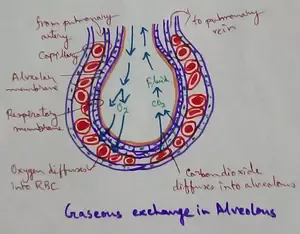Pollution
These days we all hear a lot about pollution.
What does pollution mean?
Pollution means the spoiling of the environment by various causes. It harms all creatures i.e. human beings, animals and plants. We need clean air and water to grow well and to be healthy. Without clean air and water, we fall sick.
Let us take a look around our surroundings carefully. Do we think our environment is healthy? These days many people cannot breathe properly. They have many breathing problems, stomach problems, etc. because of the polluted air and water.
Dust and smoke coming out of buses, cars, power plants, etc. are harmful for human being, plants and animals. These dust and smoke make the air dirty. This dirty air is called polluted air which is not safe to breathe in.
Similarly, rivers, lakes and wells do not have clean water
to drink. Waste from factories and houses are often thrown into them. This
waste makes the water polluted. This polluted water is harmful to drink. If we
drink this polluted water, it causes stomach problems and many other diseases.
Polluted water is harmful for plants and animals too.
We are facing the problem of noise pollution too. Blaring loudspeakers, horns, etc. can affect our hearing and even cause mental disturbance. So, we must avoid unnecessary and loud noise.
Fortunately, most of our villages are sill free from air pollution. They d not have many cars and buses on the roads. There are hardly any factories in villages. There are many plants to clean the air. So, most villages have clean air in the environment. But they do not have clean water because most villages have dirty wells and rivers. People throw waste from their houses in the rivers and wells. They bath and wash their clothes in our near the rivers and make the water dirty. Open wells get polluted very easily. This polluted water should be cleaned first. Only then it should be used for drinking. Most villagers drink polluted water which often leads o many serious diseases like diarrhea, etc.
Recent Articles
-
What Is Plasma? | Blood Plasma | Proteins | Nutrients | Cholesterol
Nov 07, 25 10:29 AM
Blood is a mobile fluid which is a connective tissue and is derived from the mesoderm like cell any other connective tissue. Colour of blood is reddish and that flows inside the blood vessels by means… -
Disorders of Respiratory System | Tuberculosis | Pleurisy | Emphysema
Oct 28, 25 11:39 PM
Tuberculosis is very common disease and is caused by a type of bacteria called Mycobacterium tuberculosis. This disease causes different trouble in the respiration and infection of several parts of th… -
Regulation of Respiration | Respiratory Centres | Inspiratory Area |
Oct 14, 25 12:13 AM
Respiratory Centre is the area that controls the rate of respiration and it is observed to be located in medulla oblongata and pons. Respiratory Centre has the following will dispersed components like… -
Explain Transport of Gases | External Respiration | Tissue Respiration
Oct 09, 25 11:35 PM
In humans gaseous exchange is completed in the following ways the steps are - External Respiration or Breathing - Breathing in false taking in of Oxygen and giving out of carbon dioxide in the body. M… -
Kind and Number of Teeth | Location of Teeth in Mouth | Care of Teeth
Sep 11, 25 12:52 AM
Kind and Number of Teeth





New! Comments
Have your say about what you just read! Leave me a comment in the box below.